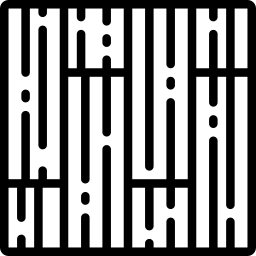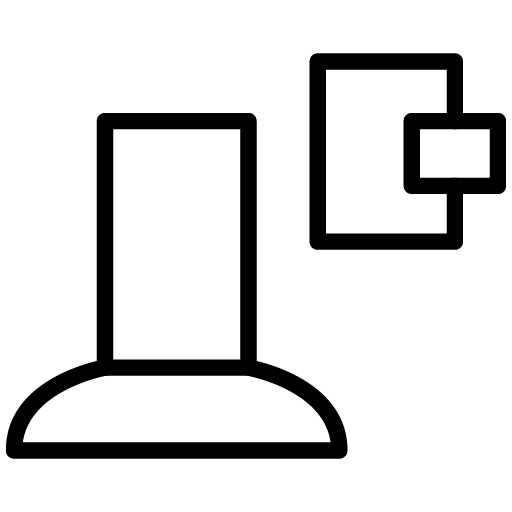Glass in the building industry is an alternative material to wood and concrete. Glass is light, versatile, and complements any design and style.
Glass is an ideal building material because it is not affected by water or chemicals in the air and does not wear out quickly because it is abrasion-resistant.
The advantages of using glass are;
- Glass is transparent and transmits light
The see-through quality of glass allows natural light to flow into your house even when the windows are closed. Glass transmits natural sunlight without any yellowing or clouding, thus brightening the home and enhancing the mood.
- Glass is dustproof and waterproof.
The smooth glossy surface of the glass makes it dustproof and waterproof. Glass is therefore ideal for you to use both indoors and outdoors. Glass is easy to clean and maintain.
- Glass is available in many .colours
Different colored glass tints and films make it possible for you to change the appearance of glass. You can get a laminated glass with colored interlayers for a striking lighting effect.
- Glass designs are aesthetically pleasing.
Glass makes a building look sophisticated, modern and adds to its beauty. You can complement any design with glass to take the aesthetic of the building to the next level.
- Glass is sustainable and 100% recyclable.
Glass is 100% reusable, and you can recycle it several times without reducing its quality. Furthermore, when you recycle glass, you save energy, reduce water and air pollution, and conserve natural resources.
- Glass is UV stable
We all have concerns about climate change, which makes it essential to find a material that shields us from harmful UV rays from the sun. Glass is not affected by ultraviolet rays and will not crack or discolor. It will also protect you from dangerous UV rays.
- Glass is rust and weather-resistant
Glass is resistant to corrosion and most chemicals since tempered glass is durable. Moreover, it can withstand most weather conditions. It will retain its appearance and quality through the seasons without degrading. Glass is stable in both cold and hot weather.
- Glass is an insulator of electricity.
Glass is a poor conductor of electricity that ensures that you are safe from electrical hazards in the absence of free electrons. This insulation property makes glass versatile, and you can use it for ceiling lighting, and it is safe to use with other electrical appliances.
Hence, let us explore the different types of glass that you can use when designing.
Frosted glass
Interior designers mainly use frosted glass for decorative purposes and when you need privacy because it obscures visibility. The glass has a cloudy look that makes the glass opaque making it ideal for bathrooms and bedrooms. You can get the glass patterned to your preference, and businesses use this to imprint their logos in the workplace.
It has frosted glass results from acid-etching or san-blasting. Acid- etching results in a smooth permanent design, is more economical and resistant to handprints and marks. On the other hand, sand-blasting results in maximum opacity and privacy but a rugged design that is harder to clean.
Pros of using frosted
- Frosted glass is easy to maintain and clean using regular cleaning products.
- The opaque quality of frosted glass enhances your privacy and security.
- Frosted glass can be patterned, which enhances the aesthetics of the room.
Cons of using frosted glass
- Frosted glass may have uneven surfaces.
- It is more fragile and can break due to extreme temperatures
Insulated glass
Insulated glass consists of two sealed glass units with a gas-filled space between them. Insulated glass has soundproofing and temperature control abilities. This makes it preferable for office and home use. These insulation properties help to conserve energy and reduce electric bills.
You can choose different thickness insulated glass depending on your security and insulation needs. Installing insulated glass helps you keep your house cool in summer and preserves the hot air in winter. Lastly, it offers extra protection against harsh weather and keeps excess noise outside for a more peaceful environment.
Pros of using insulated glass
- Insulated glass gives thermal insulation, which helps regulate the temperature indoors.
- Secondly, insulated glass increases security because it is not easily breakable and can withstand high impacts.
- Insulated glass helps keep excess noise outside, resulting in a more peaceful environment.
- The insulated glass will help keep harmful UV rays from entering the room.
Cons of using insulated glass
- Insulated glass is more expensive than regular glass
- Insulated glass cannot be repaired after damage and requires replacement
Tempered glass
Tempered or toughened glass provides extra security because it does not break easily. They are used in display casings, fireplace glass and windows and doors in business premises.
Pros of tempered glass
- Tempered glass is scratch-resistant
- Tempered glass can withstand extreme temperatures and pressure without breaking.
- Tempered glass does not shatter when broken, making it safer to use
Cons of tempered glass
- Tempered glass is more expensive than regular glass
- You cannot cut or drill the glass after tempering.
Laminated glass
Laminated glass consists of bonded layers of glass with resin between them, making it up to five times stronger than regular glass. Therefore, laminated glass is ideal for entry points, large windows, and commercial buildings because they are storm-resistant and hard to break.
Pros of using laminated glass
- Laminated glass is hard to break and more durable than ordinary glass
- Laminated glass is weather resistant and can withstand storms and hurricanes
- Laminated glass has thermal and sound insulation properties
- Laminated glass is safer to use because it does not shatter when broken
Cons of using laminated glass
- Laminated glass has several layers of panels, which can decrease optical clarity.
- Secondly, laminated glass is more expensive than ordinary glass
Summary
In summary, glass is an ideal building material because it is weather and chemical resistant and protects us from harmful UV rays. In addition, it is 100% recyclable and sustainable. Glass complements most designs and styles and elevates the room’s aesthetics. Furthermore, you can choose from various types of glass, such as insulated glass, tempered glass, laminated glass, and frosted glass.
Contact us at Glassupply.com for the highest quality glass panels for all your project needs. You can conveniently order and check out online, and we will ship the products to your doorstep. We have the best market prices, and our one-year manufacturer’s warranty guarantees you the highest quality products.


















